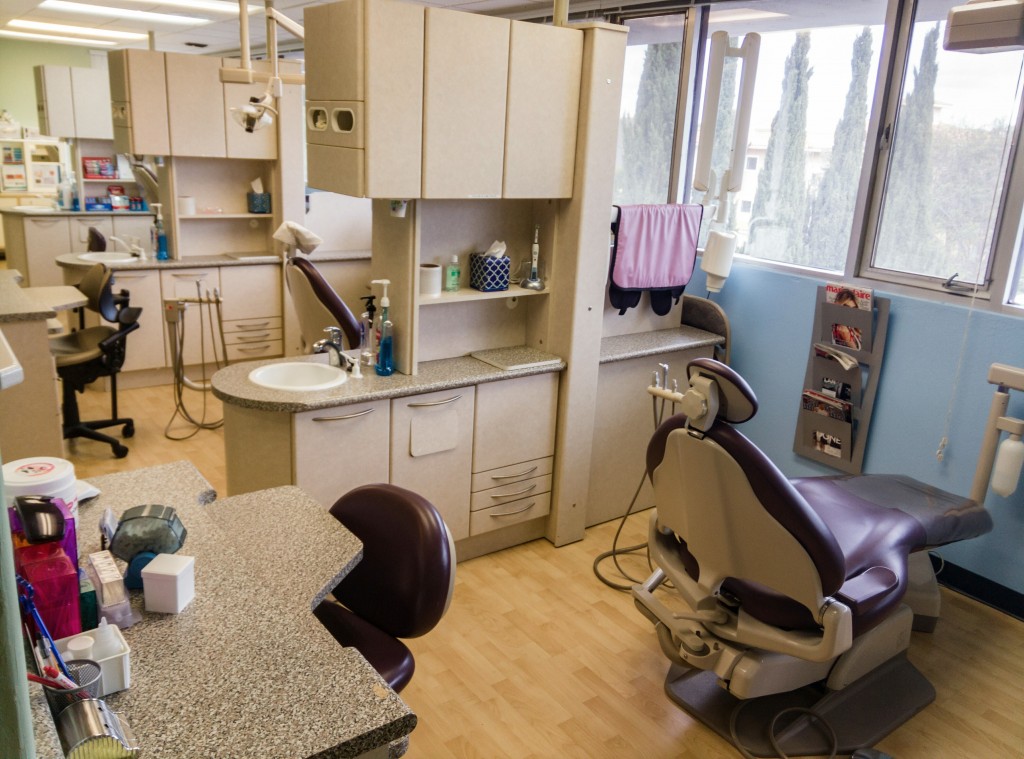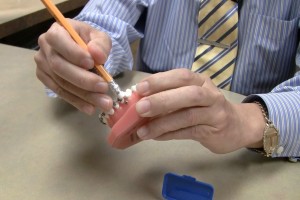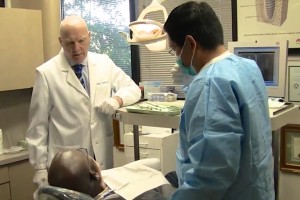6 Dental Tips

When it comes to dental health techniques, brushing and flossing are just the tip of the iceberg. Photo: American Ratings Corporation (2015)
For most people, dental health is merely a matter of brushing and flossing. However, depending on your situation, it can get a lot more complicated. Whether you’re a parent, wear braces, have an insurmountable fear of the dentist, or simply want to optimize your oral hygiene routine, you can benefit from the following dental tips.
1. Floss before you brush.
To maximize the effectiveness of brushing, make it the final step of your oral hygiene routine. Always floss before you brush—it’ll remove food particles from the spaces between your teeth and allow for better brushing coverage. If you use mouthwash, do so in between flossing and brushing. Ideally, there should be a small amount of toothpaste in your saliva when you go to bed, which will allow its effects to extend beyond the bathroom.
2. Think twice about teeth whitening.
Just because teeth whitening treatments are widely available doesn’t mean they’re right for everyone. One reason to think twice is if you have prosthetic restorations like crowns or veneers. Since restoration materials don’t respond to whitening chemicals the same way your real teeth do, it can result in mismatched coloration. To avoid this and other potential consequences, consult your dentist before using a teeth whitening treatment.

One trick for alleviating discomfort with braces is to use the eraser end of a pencil to reposition a protruding wire. Photo: American Ratings Corporation (2015)
3. Alleviate pain from braces.
A common occurrence for those with braces is irritation caused by a loose or sharp wire. If you aren’t able to see your orthodontist right away, there are a couple of ways you can deal with this in the meantime. One is to cover the protruding area with a piece of dental wax. If you’re out of wax, a piece of chewing gum will work. Another technique is to use the eraser end of a pencil to move the wire into a more comfortable position.
4. Rinse after eating.
Some dental tips are so simple, they’re easy to overlook. One is to rinse your mouth with water after eating, a step that combats cavities, bad breath and other issues by keeping bacterial activity in check. With your teeth aligned, start at one corner of your mouth and move the water all the way around to the other side, making sure every area gets covered. For maximum effectiveness, repeat this process a total of three times.
5. Care for your infant’s oral health.
If you’re the parent of an infant, you’ll want to take steps to promote good oral health early. One crucial measure is to give your child water after nursing, particularly at the end of the day. When babies continually go to bed with milk residue on their teeth, it can gradually lead to a form of tooth decay known as “bottle rot.” By rinsing the milk off their teeth after nursing, a small amount of water will help prevent this.

Besides helping patients who have dental phobias, sedation dentistry can benefit those who experience issues like an involuntary gag reflex. Photo: American Ratings Corporation (2015)
6. Consider sedation dentistry.
Sedation dentistry is a growing area of specialization that employs sedative means to help patients with particular issues. For patients who suffer from anxiety about dental work, sedation dentistry can ease fears and make for a worry-free experience. It can also benefit those who experience complications with local anesthesia or an involuntary gag reflex.
For more dental tips and a list of Diamond Certified dental professionals in your area, visit www.diamondcertified.org.